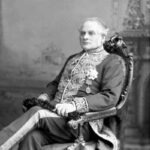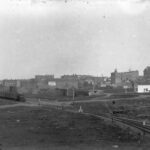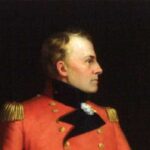
It is with heavy hearts that we announce the peaceful passing of Graeme Stewart Mount, just four days shy of his 86th birthday. Graeme fought a five-year battle with cancer, showing unbelievable positivity and a truly unwavering spirit. He left this world with his family right by his side.
Graeme was a proud Laurentian University Professor Emeritus. He touched countless lives through his teaching and mentorship. In 2000, Graeme was awarded the “Teacher of the Year” award. His dedication to students included inviting them on research trips to archives across Canada and internationally.
His absence will be felt from Sudbury to Victoria, and around the entire world by friends, students, and family, many of whom visited his beloved cottage on Long Lake.
His research interests were extensive and led to an impressive array of publications. Books about Canadian-American relations, and most recently his co-authored work on Northeastern Ontario, marked the beginning and end of a long publishing career. His doctoral thesis on the establishment of the Panama Canal was the beginning of numerous publications about the Caribbean and Latin America. Graeme had a passion for travel, canoeing, and keeping up with world and domestic events.
Graeme is survived by his wife of 61 years, Joan Eva Janet Biggar Mount; his two sons, Fraser (Patrick) and Andrew (Laurie); his beloved grandsons, Blake and Sawyer; and by Graeme’s brother, John (Elizabeth).
He was deeply loved, and his presence will live on in our memories and countless “G.S.M.” stories. Family would appreciate donations in his memory to the local S.P.C.A., Pet Save, or the BC Cancer Foundation.
Dr. Graeme Stewart Mount is a distinguished Canadian historian and professor emeritus of history at Laurentian University in Sudbury, Ontario, where he served for over three decades. Known for his broad intellect and international perspective, Dr. Mount has made enduring contributions to the study of Canadian foreign relations, Cold War diplomacy, and Latin American and Caribbean political history.
Born and educated in Canada, Dr. Mount pursued graduate studies in history and began his academic career with a focus on Canada’s evolving relationship with the United States during the 20th century. Over the course of his career, he developed a reputation for nuanced scholarship that combined meticulous archival research with accessible prose, making his work valuable both to scholars and general readers.
His early academic work examined Canada’s strategic position within the context of the Cold War, with a particular focus on security, intelligence, and diplomatic relations. One of his most recognized books, Invisible and Inaudible in Washington: American Policies toward Canada during the Cold War (1999), explores how Canada’s political autonomy was perceived and often overlooked by U.S. policymakers, offering a sobering critique of asymmetrical power in North American diplomacy. In Canada’s Enemies: Spies and Spying in the Peaceable Kingdom, co-authored with Dwight N. Meredith and Barry Gough, Mount expanded his analysis into the realm of espionage, detailing cases of Soviet infiltration and Canadian intelligence responses during the Cold War.
Dr. Mount’s work also extended beyond Canada’s borders. He authored and co-authored several significant studies on Latin America and the Caribbean, including:
- The Caribbean Basin: An International History
- The Foreign Relations of Trinidad and Tobago: 1962–2000
- Presbyterian Missions to Trinidad and Puerto Rico
These works reflect a deep interest in post-colonial political development, the influence of religion and education in imperial settings, and small state diplomacy in the broader Atlantic world.
Dr. Mount has also written extensively on borderlands and cross-cultural relations, co-authoring An Introduction to Canadian-American Relations, which became a foundational text for students exploring bilateral issues such as trade, defense, environmental cooperation, and cultural identity.
Photography and Public History
In 2013, Dr. Mount published a unique and more personal work, Historic Pictures: Photos of Places in Transition, a reflective volume that blends his love of photography with historical commentary. The book features photographs taken during his travels to places of historical significance—such as Odessa, Hungary, Panama, and Northern Ireland—framing these locations as visual testimonies of political change, cultural memory, and identity. Through short essays accompanying each photograph, Mount reflects on the intersection of place, history, and human experience. His images are not just visual records but starting points for broader historical interpretation.
In the chapter on Hungary, for instance, Mount captures the dismantling of Cold War barriers in 1989, while his section on Costa Rica highlights the country’s response to Nicaraguan aggression without the use of military force—reflecting on the power of diplomacy over arms. These pieces illustrate Mount’s belief that history is not only found in documents, but also in landscapes, ruins, and the faces of people caught in moments of transformation.
Teaching and Legacy
As a professor, Dr. Mount was known for his engaging lectures, interdisciplinary teaching style, and mentorship of undergraduate and graduate students. He taught a range of courses, from Canadian political history to international relations, and was instrumental in building the international history program at Laurentian University. His former students recall his passion for detail, his ability to connect local events to global trends, and his encouragement of critical thinking.
Beyond academia, Mount contributed to public discourse through media interviews, public lectures, and community events, particularly on matters of Canadian sovereignty, U.S. foreign policy, and the moral dimensions of diplomacy.
Select Publications:
- Invisible and Inaudible in Washington: American Policies toward Canada during the Cold War
- Canada’s Enemies: Spies and Spying in the Peaceable Kingdom
- The Caribbean Basin: An International History
- Presbyterian Missions to Trinidad and Puerto Rico
- The Foreign Relations of Trinidad and Tobago: 1962–2000
- An Introduction to Canadian-American Relations
- Historic Pictures: Photos of Places in Transition
Dr. Graeme Mount’s scholarly career reflects a lifelong commitment to understanding the dynamics of power, diplomacy, and cultural identity across borders. Whether analyzing Cold War espionage or reflecting on the decaying walls of a fortress in Eastern Europe, his work invites readers to see history not as static chronology, but as lived experience shaped by place, memory, and change.
His blend of academic precision, visual storytelling, and dedication to public education ensures that his contributions will continue to inform and inspire those who seek to understand Canada’s role in the world—and the world’s impact on Canada.







